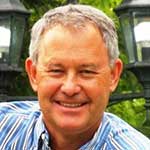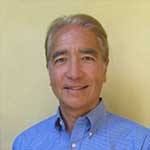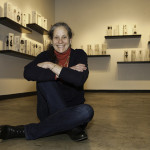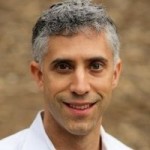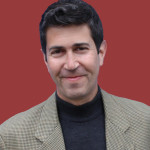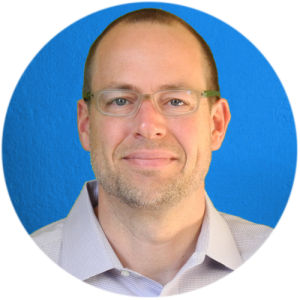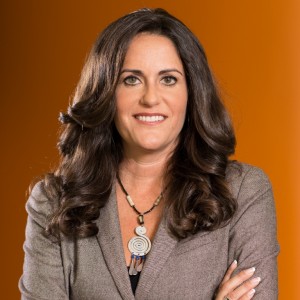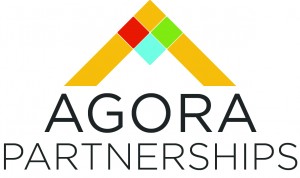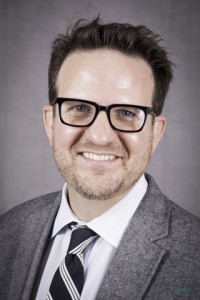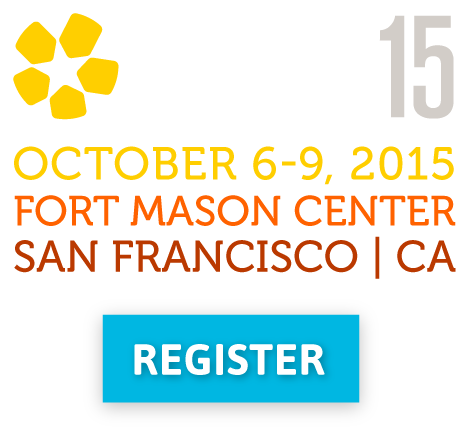The Social Capital Markets Conference (SOCAP) and the Gratitude Network are excited to announce this year’s Gratitude Award finalists. These nine ventures were selected over three rounds of judging from a pool of 550 SOCAP entrepreneur scholarship applications. The final round of judging will take place at SOCAP15.
Watch the Gratitude Award Winners On Stage at SOCAP15 and Vote
All nine Gratitude Award finalists will pitch their ventures to the SOCAP community on the main stage at Fort Mason Center on Tuesday, October 6th at 4:30 pm. This session, Impact Bazaar: Celebrating Entrepreneurs, will highlight the grit and inspiration of social entrepreneurs. You don’t want to miss the opportunity to see pitches from some of the world’s most innovative social entrepreneurs! One winning venture will be selected for each category and the SOCAP audience will select one winner by vote. All winning ventures will be assigned a Gratitude Super Mentor and Facilitator and will receive a year of mentoring and introductions to influential business leaders by the Gratitude team.
The four Gratitude Award Winners will be announced in the Friday Closing Plenary Session from 12:30 - 2:00 pm.
The Finalists
Three social enterprises have been nominated in each of three categories: community development, education, and environment/sustainability:
Community Development
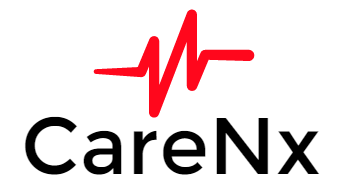 Operating from India, CareNx is trying to solve a problem of improper healthcare access in the remote villages of India. They are working within the smartphone ecosystem to develop affordable, quick and mobile healthcare solutions. CareNX’s first product, CareMother is a smartphone application with a medical device kit that enables pregnant women to perform medical tests and report them to a doctor remotely. CEO and Co-founder Shantanu Patak will present for CareNXInnovations.
Operating from India, CareNx is trying to solve a problem of improper healthcare access in the remote villages of India. They are working within the smartphone ecosystem to develop affordable, quick and mobile healthcare solutions. CareNX’s first product, CareMother is a smartphone application with a medical device kit that enables pregnant women to perform medical tests and report them to a doctor remotely. CEO and Co-founder Shantanu Patak will present for CareNXInnovations.
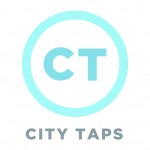 Focusing on the urban poor in Africa that do not have access to in-home water service, CityTaps has developed a prepaid smart water meter system that allows customers to spread out costs via micropayments with any mobile phone. Residents with irregular incomes cannot afford high upfront connection fees and monthly bills. Water utilities can access this new revenue with certainty while saving 15-20% on operating costs. CFO Miranda Phua will present for CityTaps.
Focusing on the urban poor in Africa that do not have access to in-home water service, CityTaps has developed a prepaid smart water meter system that allows customers to spread out costs via micropayments with any mobile phone. Residents with irregular incomes cannot afford high upfront connection fees and monthly bills. Water utilities can access this new revenue with certainty while saving 15-20% on operating costs. CFO Miranda Phua will present for CityTaps.
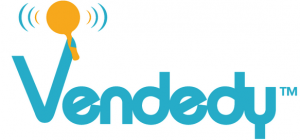 Located in New York with pilot projects in Haiti and Brazil, Vendedy is creating a mobile marketplace that connects travelers to street artisans of the developing world. Over two billion people live in poverty while working as street sellers. Vendedy’s mission is to alleviate global poverty by digitizing the street vending industry. CEO and Founder Christine Souffrant will present for Vendedy.
Located in New York with pilot projects in Haiti and Brazil, Vendedy is creating a mobile marketplace that connects travelers to street artisans of the developing world. Over two billion people live in poverty while working as street sellers. Vendedy’s mission is to alleviate global poverty by digitizing the street vending industry. CEO and Founder Christine Souffrant will present for Vendedy.
Education
 Operating in Haiti, Rwanda and the Democratic Republic of Congo, where books are difficult to find, outdated and expensive, Library For All is a digital library solution. They aim to serve those among the 250 million children in the developing world who have limited access to quality educational materials. Their mission is rooted in the belief that education is the key to unlocking the solutions to global poverty. Library For All bring together publishers, in-country advisors and technology companies to deliver high quality, relevant content to users in local languages. The platform is optimized for low-broadband environments and designed to operate on devices already available in the developing world, including low-cost tablets and mobile phones. Director of Business Development Isabel Sheinman will present for Library For All.
Operating in Haiti, Rwanda and the Democratic Republic of Congo, where books are difficult to find, outdated and expensive, Library For All is a digital library solution. They aim to serve those among the 250 million children in the developing world who have limited access to quality educational materials. Their mission is rooted in the belief that education is the key to unlocking the solutions to global poverty. Library For All bring together publishers, in-country advisors and technology companies to deliver high quality, relevant content to users in local languages. The platform is optimized for low-broadband environments and designed to operate on devices already available in the developing world, including low-cost tablets and mobile phones. Director of Business Development Isabel Sheinman will present for Library For All.
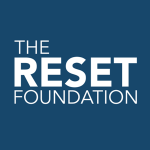 Starting in California, The Reset Foundation is launching a network of residential education campuses that will serve as an alternative to incarceration for young men ages 18-24. The Reset Foundation repurposes criminal justice dollars with a program designed to help the thousands of young people who are caught in the poverty-to-prison cycle in America today. They aim to enable high school graduation, enhance career readiness, and improve social-emotional wellness for a generation of young people who might otherwise face prison time. Co-Founder and CEO Jane Mitchell will present for The Reset Foundation.
Starting in California, The Reset Foundation is launching a network of residential education campuses that will serve as an alternative to incarceration for young men ages 18-24. The Reset Foundation repurposes criminal justice dollars with a program designed to help the thousands of young people who are caught in the poverty-to-prison cycle in America today. They aim to enable high school graduation, enhance career readiness, and improve social-emotional wellness for a generation of young people who might otherwise face prison time. Co-Founder and CEO Jane Mitchell will present for The Reset Foundation.
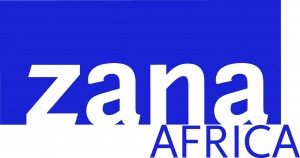 Located in Kenya, ZanaAfrica is a hybrid social enterprise that equips East African females with affordable, eco-responsible reusable and disposable sanitary pads and underwear and offers vital health education. Nearly 1 million Kenyan girls miss up to 6 weeks of school annually due to lack of pads and health education, 60% of girls drop out of secondary school, 22% of girls report their first sexual experience was coerced or forced with a partner 4 years older, 47% of teen mothers have unintended pregnancies, and HIV prevalence among girls is 4 times that of boys. ZanaAfrica has served over 20,000 girls and women with the vital feminine hygiene products and health education they need to live healthier, self-directed lives. Founder and CEO Megan Mukuria will present for ZanaAfrica.
Located in Kenya, ZanaAfrica is a hybrid social enterprise that equips East African females with affordable, eco-responsible reusable and disposable sanitary pads and underwear and offers vital health education. Nearly 1 million Kenyan girls miss up to 6 weeks of school annually due to lack of pads and health education, 60% of girls drop out of secondary school, 22% of girls report their first sexual experience was coerced or forced with a partner 4 years older, 47% of teen mothers have unintended pregnancies, and HIV prevalence among girls is 4 times that of boys. ZanaAfrica has served over 20,000 girls and women with the vital feminine hygiene products and health education they need to live healthier, self-directed lives. Founder and CEO Megan Mukuria will present for ZanaAfrica.
Environment/Sustainability
 Located in England, Carbon Analytics is revolutionising business by bringing instant environmental impact assessment and management to every company. Small and medium businesses (SMEs) typically lack the resources and expertise needed to understand how to make their business more sustainable. Carbon Analytics develops tools for assessing company’s carbon and water footprint directly from companies’ accounting data. Right now the vast majority of businesses do not know the environmental impact their business has and without this knowledge cannot make many simple changes that could reduce it. Carbon Analytics aims to solve these problems by integrating environmental and financial measurement. CEO Michael Thornton will present for Carbon Analytics.
Located in England, Carbon Analytics is revolutionising business by bringing instant environmental impact assessment and management to every company. Small and medium businesses (SMEs) typically lack the resources and expertise needed to understand how to make their business more sustainable. Carbon Analytics develops tools for assessing company’s carbon and water footprint directly from companies’ accounting data. Right now the vast majority of businesses do not know the environmental impact their business has and without this knowledge cannot make many simple changes that could reduce it. Carbon Analytics aims to solve these problems by integrating environmental and financial measurement. CEO Michael Thornton will present for Carbon Analytics.
 Located in Guatemala, CASSA designs and builds self-sufficient social housing that provides its residents with clean water, clean energy and sanitation. In Guatemala, the housing deficit currently exceeds 1.5 million homes. Close to 8 million people live without housing or in inadequate structures that lack basic services. The company builds customized and affordable homes out of natural building materials that integrate a suite of appropriate technologies to actively provide users with vital services. CASSA’s objective is to build as many houses as possible to directly help bring down the housing deficit in Guatemala and Central America. President Antonio Aguilar will present for CASSA.
Located in Guatemala, CASSA designs and builds self-sufficient social housing that provides its residents with clean water, clean energy and sanitation. In Guatemala, the housing deficit currently exceeds 1.5 million homes. Close to 8 million people live without housing or in inadequate structures that lack basic services. The company builds customized and affordable homes out of natural building materials that integrate a suite of appropriate technologies to actively provide users with vital services. CASSA’s objective is to build as many houses as possible to directly help bring down the housing deficit in Guatemala and Central America. President Antonio Aguilar will present for CASSA.
 Originating in India, Waste Ventures works with city and state governments to revolutionize Integrated Solid Waste Management in India. Every week, urban India creates a mound of garbage that weighs 2 times the Empire State Building. Only 60% of the waste is collected leaving the rest to fester in the streets and neighborhood garbage piles that lead to 22 vector-borne illnesses through vermin and are often burned, releasing toxins in the air. The company composts organic waste, turning it into soil conditioner to sell to farmers and at a city scale, recycles dry waste to sell to wholesalers. This table-to-farm approach averts 80% of waste from being dumped, employs waste pickers, reduces greenhouse gases, and creates much needed topsoil for farmers. Founder Parag Gupta will present for Waste Ventures.
Originating in India, Waste Ventures works with city and state governments to revolutionize Integrated Solid Waste Management in India. Every week, urban India creates a mound of garbage that weighs 2 times the Empire State Building. Only 60% of the waste is collected leaving the rest to fester in the streets and neighborhood garbage piles that lead to 22 vector-borne illnesses through vermin and are often burned, releasing toxins in the air. The company composts organic waste, turning it into soil conditioner to sell to farmers and at a city scale, recycles dry waste to sell to wholesalers. This table-to-farm approach averts 80% of waste from being dumped, employs waste pickers, reduces greenhouse gases, and creates much needed topsoil for farmers. Founder Parag Gupta will present for Waste Ventures.
Meet the Finalists
We offer congratulations to all selected finalists. SOCAP attendees will also have an opportunity to meet the entrepreneurs who represent these ventures in the Innovation Showcase on Wednesday and Thursday, located within Impact Hub@SOCAP, where Gratitude Award Finalists will be available to answer questions and share more about their ventures.
2015 Gratitude Award Judges
In the final round, a panel of Gratitude Award judges who are experts in the field of social impact reviewed the applications of 33 semi-finalists and selected three Finalists to represent their category.
The Gratitude panel of judges in 2015 included:
Shikha Uberoi Co-Founder of Indi
Cory Trenda Senior Director for World Vision
Paul Miller Vice President, Business Development, The Gratitude Network
Penelope Douglas Co-Founder & Partner at the Heritas Group & Chair at Mission Hub
Kevin Barenblat Founder & President of Fast Forward
Randy Haykin Founder & Partner at the Gratitude Network
Rick Moss Director and Founder of Better Ventures
Julie Trell Executive Director of Workday Foundation


